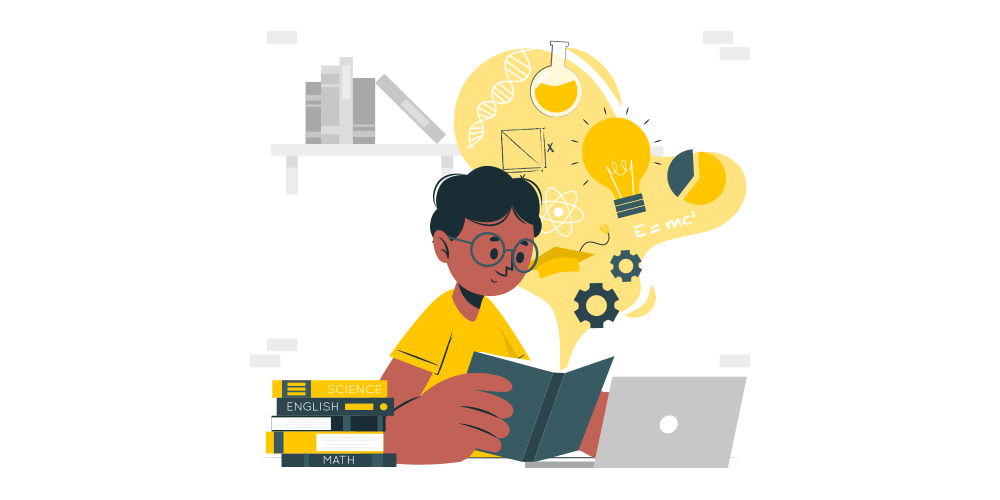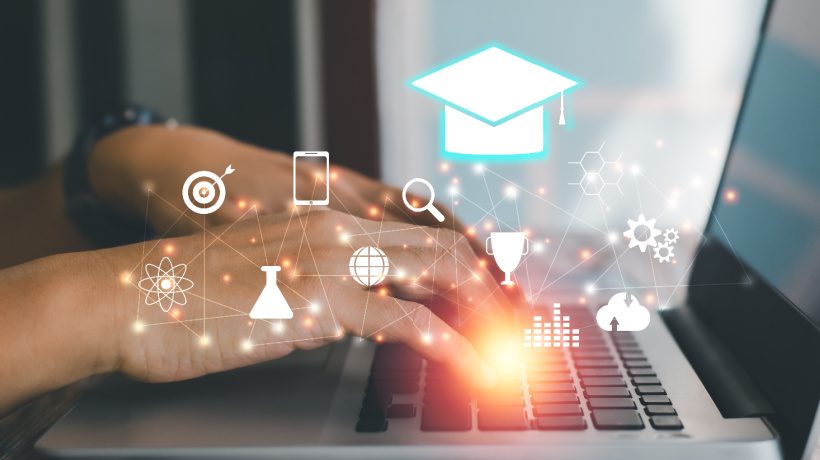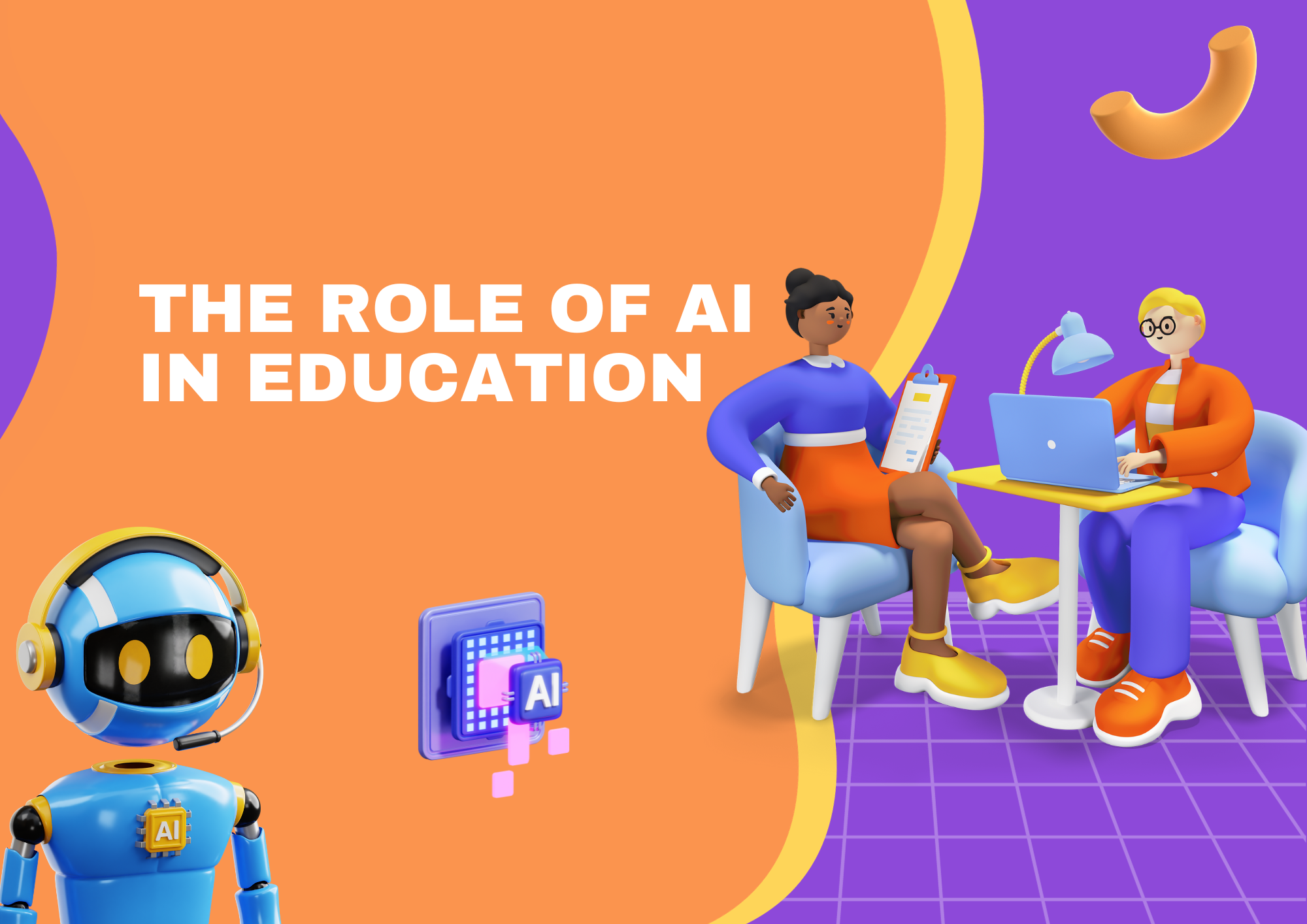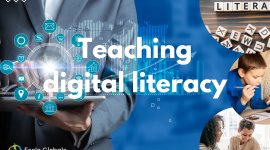In the rapidly evolving landscape of education, personalized learning has emerged as a pivotal pedagogical approach, aiming to tailor education to individual needs and preferences. Simultaneously, Artificial Intelligence in Education has become a transformative force across various domains, and its integration into education holds the promise of revolutionizing the way students learn.
Personalized Learning

Personalized learning refers to the instructional approach that adapts the pace, content, and method of learning to meet the unique needs and preferences of individual students. Unlike traditional, one-size-fits-all models, personalized learning acknowledges the diverse learning styles and abilities of students, aiming to optimize their educational journey.
Overview of Artificial Intelligence in Education

Artificial Intelligence in Education encompasses a range of technologies that enable machines to perform tasks that typically require human intelligence. These tasks include problem-solving, learning, speech recognition, and decision-making. AI algorithms, fueled by vast amounts of data, have the capacity to analyze patterns, make predictions, and continuously improve through iterations.
Definition and Principles of Personalized Learning
Personalized learning is rooted in the understanding that each learner has a unique set of abilities, preferences, and learning styles. The principles involve recognizing and accommodating these individual differences to optimize the learning experience. This approach stands in contrast to traditional education models, which often follow a standardized curriculum and pace.
Importance of Catering to Individual Learning Styles and Preferences
Research consistently shows that students have different learning preferences and strengths. Some may excel in visual learning, while others may benefit more from auditory or kinesthetic approaches. Personalized learning aims to cater to these differences, fostering a more engaging and effective learning environment.
Challenges in Traditional Education Models
Traditional education models, designed for efficiency and uniformity, often struggle to address the diverse needs of students. A one-size-fits-all approach can leave some students behind, leading to disengagement, frustration, and lower academic performance. Artificial Intelligence in Education, seeks to address these challenges by providing customized learning experiences.
The Intersection of Artificial Intelligence in Education

Adaptive Learning Systems
Explanation of Adaptive Learning
Adaptive learning systems leverage AI algorithms to tailor educational content and pacing based on individual learner progress. These systems continuously analyze data on student performance and adjust the learning experience in real-time. This adaptability allows students to progress at their own pace, ensuring a deeper understanding of concepts before moving forward.
Examples of AI-Powered Adaptive Learning Platforms
Platforms like Khan Academy and DreamBox are exemplary instances of adaptive learning systems. Khan Academy, for instance, utilizes Artificial Intelligence in Education to assess a student’s mastery of a concept and provides targeted exercises accordingly. DreamBox employs intelligent algorithms to create personalized learning pathways, promoting conceptual understanding and mastery.
Intelligent Tutoring Systems
Overview of Intelligent Tutoring Systems
Intelligent Tutoring Systems (ITS) represent a sophisticated form of Artificial Intelligence in Education. These systems act as virtual tutors, providing personalized guidance, feedback, and assistance to learners. ITS can adapt to individual learning styles, identifying areas of difficulty and offering targeted support to improve understanding.
How AI Algorithms Tailor Instruction to Individual Needs
AI algorithms in ITS analyze a student’s interactions with the system, assessing strengths and weaknesses. By identifying patterns in learning behaviors and outcomes, these algorithms can dynamically adjust the instructional approach. This ensures that each student receives customized support, ultimately enhancing their comprehension and skill development.
Personalized Content Recommendations
Role of AI in Analyzing Learning Data
Artificial Intelligence in Education capable of process vast amounts of data is harnessed to analyze students’ learning behaviors, preferences, and performance. This data-driven approach enables AI to gain insights into individual strengths and areas that require improvement, forming the foundation for personalized content recommendations.
Customized Content Delivery Based on Learner Performance and Preferences
Once learning data is analyzed, Artificial Intelligence in Education can recommend or deliver content tailored to each student’s needs. This may include suggesting additional resources, adjusting the difficulty level of exercises, or presenting information in a format that aligns with the learner’s preferred style. Such customization ensures that students engage with content most relevant to their current learning stage.
Benefits of AI in Personalized Learning
Improved Learning Outcomes
One of the key advantages of Artificial Intelligence in Educationand in personalized learning is the ability to individualize the pacing of instruction. Students can progress through material at a pace that aligns with their understanding, ensuring they grasp fundamental concepts before moving on. This personalized approach contributes to deeper comprehension and retention of knowledge.
Increased Engagement and Motivation
By tailoring content and interactions to individual interests and preferences, AI-powered personalized learning experiences can significantly enhance student engagement and motivation. When learners find the material relevant and enjoyable, they are more likely to invest time and effort into their studies, leading to improved overall academic performance.
Time Efficiency
Streamlining the Learning Process Through Automation
Artificial Intelligence in Education automates various aspects of the learning process, reducing the administrative burden on educators and allowing them to focus more on personalized interactions with students. Automated grading, progress tracking, and content delivery streamline the learning journey, making education more efficient and responsive to individual needs.
Reducing Administrative Burdens on Educators
Teachers often grapple with managing diverse classrooms with varying learning abilities. Artificial Intelligence in Education assists educators by automating routine administrative tasks, enabling them to dedicate more time to personalized instruction, mentorship, and addressing individual student needs. This collaborative approach between AI and educators can create a more supportive and effective learning environment.
Scalability and Accessibility
AI’s Ability to Reach a Broader Audience
AI-powered personalized learning solutions have the potential to reach a broader audience, transcending geographical and socioeconomic barriers. Online platforms, driven by AI, can provide quality education to learners in remote areas or those facing resource constraints, democratizing access to education.
Addressing Diverse Learning Needs More Effectively
In a diverse and inclusive learning environment, students have varying needs based on factors such as language proficiency, learning disabilities, or cultural background. AI, through its adaptability and data-driven insights, is well-positioned to address these diverse learning needs, ensuring that educational experiences are more inclusive and accessible to all.
Challenges and Considerations
Data Privacy and Security
The integration of Artificial Intelligence in Education raises concerns about data privacy. As AI systems collect and analyze large amounts of personal data, it becomes imperative to strike a balance between delivering personalized learning experiences and safeguarding the privacy and security of student information. Stringent measures and policies must be in place to protect sensitive data.
Ensuring Responsible Use of Learner Data
Educational institutions and AI developers must prioritize ethical considerations in handling learner data. Transparent policies, informed consent, and secure data storage practices are essential to ensuring that AI-enhanced personalized learning remains a trustworthy and responsible educational tool.
Ethical Considerations
Avoiding Bias in AI Algorithms
Bias in AI algorithms can perpetuate existing inequalities and disadvantage certain groups of students. Ensuring fairness in personalized learning requires continuous monitoring and adjustment of algorithms to identify and eliminate bias. Ethical considerations must guide the development and implementation of AI technologies in education.
Ensuring Inclusivity and Fairness in Personalized Learning Experiences
AI should be designed and implemented in a way that fosters inclusivity and fairness. Personalized learning experiences must be accessible to students from diverse backgrounds, ensuring that no one is left behind. This requires a commitment to addressing cultural, linguistic, and socioeconomic factors in the design and deployment of AI-driven educational solutions.
Future Directions and Innovations
Emerging Technologies
The field of Artificial Intelligence in Education is dynamic, with ongoing advancements that hold promise for the future of personalized learning. Conversational AI, augmented reality, and virtual reality are emerging technologies that can further enhance the interactive and immersive aspects of personalized learning experiences. These innovations have the potential to create more engaging and effective educational environments.
The Role of Machine Learning and Deep Learning in Shaping the Future
Machine learning (ML) and deep learning are integral components of AI that continue to evolve. In the context of personalized learning, these technologies can refine predictive analytics, enabling more accurate assessments of individual learning needs. As algorithms become more sophisticated, the potential for nuanced personalization in educational content and delivery expands.
Integration with Other Educational Technologies
How AI Aligns with Other Educational Tools and Technologies
AI does not operate in isolation; its integration with other educational technologies can amplify its impact. Learning management systems, educational apps, and interactive multimedia can work synergistically with AI to create comprehensive, personalized learning ecosystems. This collaboration fosters a holistic and adaptive approach to education.
Collaborative Efforts to Enhance the Overall Learning Environment
Educational institutions, technology developers, and policymakers must collaborate to ensure the effective integration of AI and other technologies. This involves creating frameworks for interoperability, sharing best practices, and collectively addressing challenges. A collaborative approach enhances the overall learning environment, fostering innovation and continuous improvement in personalized learning initiatives.
Conclusion
The marriage of AI and personalized learning holds immense potential to revolutionize education. By leveraging AI technologies, personalized learning can offer adaptive, engaging, and efficient educational experiences that cater to individual learning needs.
Reiterating the Transformative Potential of AI in Personalized Learning
The transformative potential of AI lies in its ability to dynamically adapt to the unique requirements of each learner. As Artificial Intelligence in Education technologies continue to evolve, personalized learning can become more nuanced, responsive, and inclusive, unlocking new frontiers in education.
Encouraging Ongoing Exploration and Responsible Implementation
While recognizing the benefits, it is crucial to approach the integration of AI in personalized learning with a commitment to ethical considerations, data privacy, and inclusivity. Ongoing exploration, research, and responsible implementation are key to harnessing the full potential of Artificial Intelligence in Education creating a landscape that truly caters to the diverse needs of every learner.
FAQs — The Role of Artificial Intelligence in Education
Q1. What is the role of Artificial Intelligence in Education?
Ans: The role of Artificial Intelligence in Education is to personalize learning, automate assessments, provide real-time feedback, and support teachers by handling routine tasks so they can focus on pedagogy and student mentorship.
Q2. How does Artificial Intelligence in Education personalize learning?
Ans: AI systems analyze student performance and learning patterns to deliver customized lessons, adapt difficulty levels, and recommend resources—making Artificial Intelligence in Education an enabler of individualized learning paths.
Q3. Can Artificial Intelligence in Education replace teachers?
Ans: No, While Artificial Intelligence in Education can automate administrative tasks and offer tutoring, human teachers remain essential for mentorship, socio-emotional support, and complex pedagogical decisions.
Q4. How does Artificial Intelligence in Education help with assessments?
Ans: AI can grade objective tests, evaluate patterns in student responses, and even assess open-ended answers using natural language processing—accelerating feedback loops in Artificial Intelligence in Education.
Q5. Is Artificial Intelligence in Education useful for students with special needs?
Ans: Yes, Artificial Intelligence in Education offers assistive technologies—text-to-speech, speech-to-text, personalized pacing—that improve accessibility and learning outcomes for students with diverse needs.









